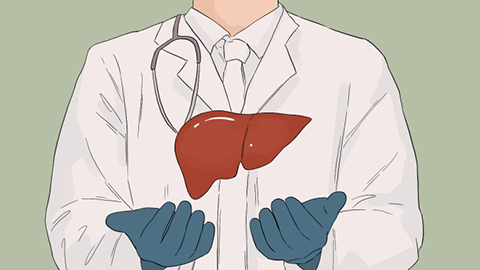What does it mean to have elevated liver enzymes?
Generally, "zhuan gan mei" refers to transaminase. Elevated transaminase levels may be related to excessive fatigue, medication effects, fatty liver disease, alcoholic liver disease, viral hepatitis, and other causes. It is recommended to seek timely medical attention and follow a doctor's guidance for treatments such as general management or medication therapy. A detailed explanation is as follows:

1. Excessive Fatigue
Extended periods of physical or mental labor can lead to a decline in bodily functions and increased burden on the liver, thereby causing elevated transaminase levels. It is recommended to manage work and rest time reasonably to avoid excessive fatigue.
2. Medication Effects
Some medications, such as antibiotics and antidepressants, may produce toxic effects during liver metabolism, damaging liver cells and increasing transaminase levels. It is recommended to take medications under a doctor's guidance and avoid adjusting dosages or misusing medications independently.
3. Fatty Liver Disease
Fatty liver disease is usually caused by long-term alcohol consumption, obesity, and other factors. Fatty degeneration of liver cells increases cell membrane permeability, leading to the release of transaminases into the bloodstream. This condition is often accompanied by symptoms such as hepatic fatigue, loss of appetite, and sleep disturbances. Treatment may involve medications like Simvastatin tablets, Atorvastatin Calcium tablets, and Polyene Phosphatidylcholine capsules, as directed by a physician.
4. Alcoholic Liver Disease
Alcoholic hepatitis is generally caused by long-term excessive alcohol consumption. Acetaldehyde, a byproduct of alcohol metabolism, has a direct toxic effect on liver cells, causing cellular degeneration and necrosis, which leads to the release of transaminases into the blood. Symptoms typically include hepatic pain, jaundice, and ascites. Treatment may involve medications such as Reduced Glutathione for Injection, Compound Glycyrrhizinic Acid Injection, and Potassium Chloride Injection, as directed by a physician.
5. Viral Hepatitis
Viral hepatitis is usually caused by viral infections. Hepatitis viruses infect liver cells, causing damage and the release of transaminases into the bloodstream. Symptoms may also include hepatic pain, jaundice, and spider angiomas. Treatment may involve medications such as Entecavir Dispersible tablets, Tenofovir Disoproxil Fumarate tablets, and Dipotassium Glycyrrhizinate Injection, as advised by a doctor.
It is recommended to develop healthy dietary habits and avoid consuming overly greasy or spicy, irritating foods, such as fatty meats, chili peppers, and ginger, to prevent additional strain on the liver.




